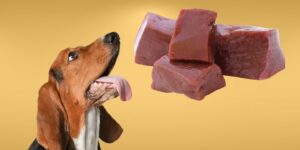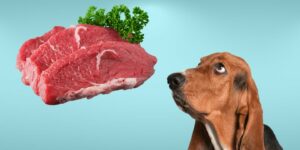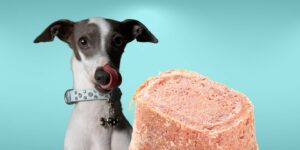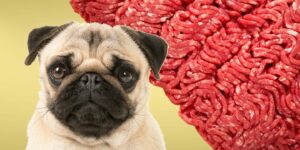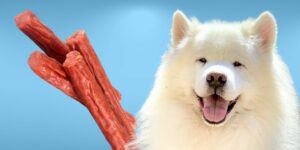Yes, dogs can eat lamb. In fact, lamb can be a good source of protein for dogs. However, it is important to feed it to them in moderation and to make sure it is cooked thoroughly.
Benefits of Feeding Lamb to Dogs
Lamb is a high-quality protein that can provide many benefits for dogs. It can help them build and maintain healthy muscles, and it is also an excellent source of essential nutrients like iron, zinc, and B vitamins.
Risks of Feeding Lamb to Dogs
Although lamb can be a healthy option for dogs, it is important to feed it to them in moderation. Lamb contains a high amount of fat, which can cause pancreatitis, weight gain, and other health problems if fed to dogs in large quantities. Also, lamb bones are a big no-no for dogs. Like all bones, they are brittle and can shred into tiny pieces causing serious injuries to the dog's digestive tract.
Nutritional Content of Lamb
Lamb is a rich source of various nutrients that are essential for a dog's overall health. Some of these nutrients include:
Protein
Lamb is an excellent source of high-quality protein, which is crucial for building and maintaining strong muscles, as well as supporting a healthy immune system.
Vitamins
Lamb is rich in B vitamins, such as B12, B6, and niacin, which are essential for maintaining a healthy nervous system and supporting energy production.
Minerals
Lamb contains essential minerals such as iron, zinc, and selenium, which are vital for maintaining strong bones, supporting the immune system, and promoting overall health.
Appropriate Lamb Portions for Dogs
When feeding lamb to dogs, it is important to consider the appropriate portion size. Moderation is key, as overfeeding lamb can lead to health issues. Factors to consider when determining portion size include:
Age
Puppies require more protein and nutrients than adult dogs, so they may benefit from larger portions of lamb. It's important to consult with a veterinarian to determine the appropriate amount for your dog's age and growth stage.
Size
Larger breeds may require more protein than smaller breeds. Consult with a veterinarian to determine the appropriate portion size for your dog based on their size and activity level.
Activity Level
Active dogs require more calories and protein than sedentary dogs. If your dog participates in high-energy activities, they may benefit from larger portions of lamb.
How to Feed Lamb to Dogs
When feeding lamb to dogs, it is important to make sure it is cooked thoroughly. Raw lamb, like all raw meats, can contain harmful bacteria that can cause illness in dogs. It is also important to remove any bones from the lamb before feeding it to your dog, as bones can splinter and cause internal injuries.
Preparing Lamb for Dogs
In addition to cooking the lamb thoroughly and removing any bones, there are additional preparation methods to consider when feeding lamb to dogs:
Trim the Fat
Since lamb is high in fat, it's important to trim away any excess fat before cooking. This can help reduce the risk of pancreatitis and weight gain.
Opt for Lean Cuts
Choosing lean cuts of lamb, such as the loin or leg, can help reduce the overall fat content of the meal.
Avoid Seasonings
Many seasonings and spices can be harmful to dogs, so it's important to cook the lamb without any added seasonings.
Alternatives to Lamb for Dogs
If your dog is unable to eat lamb, or if you're looking for alternative protein sources, consider these options:
Chicken
Chicken is a lean protein source that is easily digestible and suitable for most dogs.
Turkey
Turkey is another lean protein option that is suitable for dogs, providing many of the same nutritional benefits as chicken.
Fish
Fish, such as salmon, is an excellent source of omega-3 fatty acids, which can support a healthy coat and skin, as well as overall health.
Monitoring Your Dog's Health
If you decide to feed lamb to your dog, it's important to monitor their overall health and watch for any signs of digestive upset or allergic reactions. Consult with a veterinarian if you notice any changes in your dog's health or behavior after introducing lamb into their diet.
Conclusion
Generally speaking, cooked lamb is safe for dogs. The meat offers protein and is tasty. However, because of the high fat content, it should not be a regular meal option. It is also important to consider your dog's individual needs and consult with a veterinarian if you have any concerns.







